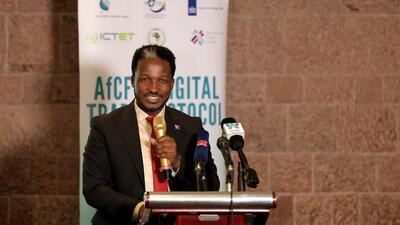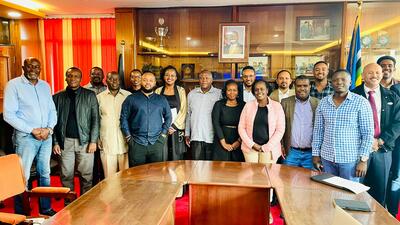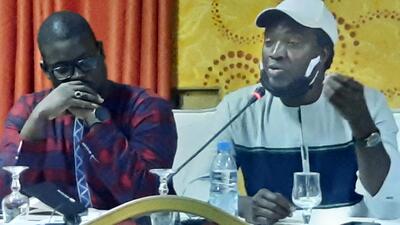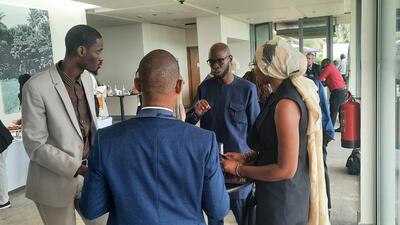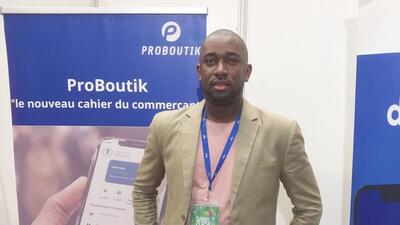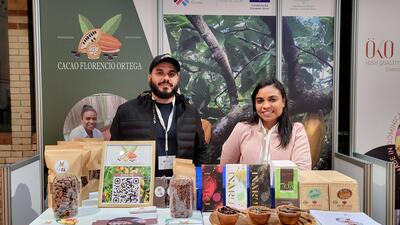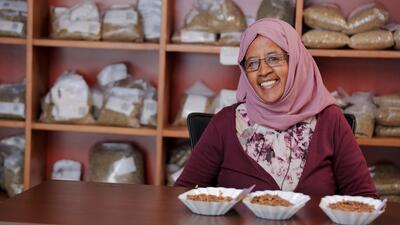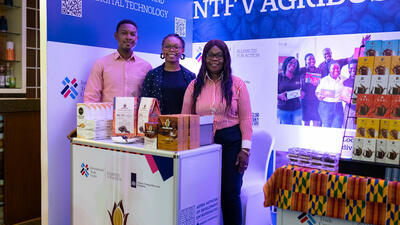
ITC advocates for small business as agents of change
Small businesses face challenges in implementing the UN Guiding Principles on Business and Human Rights. In a panel moderated by partner CLAC-Fairtrade at the UN Business and Human Rights Forum, ITC discussed how to overcome these challenges and to let entrepreneurs become agents of positive change.
Micro, small and medium-sized enterprises (MSMEs) and smallholder farmers are engines of growth. They create jobs, contribute to innovation, enable diversity, generate livelihoods, and act as both buyers and suppliers in value chains. As such, they can help lay the foundations for long-lasting peace and stability, sustainable and inclusive development, and act as agents of change.
However, they have historically remained on the sidelines of business and human rights discussions.
There is consensus that companies have a responsibility to respect human rights in their own activities and across their value chains. The United Nations Guiding Principles on Business and Human Rights (UNGPs) oblige buyers to identify non-living incomes and wages as a human rights risk and to take appropriate action to prevent it. If human rights and environmental adverse impacts have already occurred, buyers must provide access to remedy to those who suffered.
The European Union recently adopted a proposal for a Corporate Sustainability Due Diligence Directive (CS3D), closely aligned with the UNGPs.
During the United Nations Forum on Business and Human Rights, a session on ‘Small and medium enterprises as agents of change’, took place on 28 November at the Palais des Nations in Geneva.
The session unpacked the challenges, concerns and opportunities facing MSMEs and producer associations in implementing the business and human rights agenda. It also looked at how they can exercise leadership and leverage across value chains, with appropriate support.
The session was organized by the Working Group on Business and Human Rights, together with the International Organisation of Employers and the International Chamber of Commerce. The Latin American and Caribbean Network of Fair Trade Small Producers and Workers (CLAC) moderated the session.
Lawrence Attipoe, the coordinator for Africa in the EU/OACPS Business Friendly Programme, shared lessons learned from pilots on complying with the EU due diligence directive. He highlighted opportunities, including value addition at origin, as a way of diversifying income streams, increasing resilience, and decreasing risk.
ITC underscores the importance of accompanying measures
The proposed EU CS3D directive makes provision for ‘accompanying measures’ to be developed so companies and their value chain partners can fulfill their new obligations.
The ITC Alliances for Action sustainable agribusiness initiative is helping shape implementation mechanisms to guide suppliers and producers in developing countries through this change.
The initiative has been working closely with the European Commission’s Directorate-General for International Partnerships and other important partners on actionable measures to implement mandatory human rights and environmental due diligence sustainably for all. The initiative works with a blueprint for accompanying measures targeting small enterprises in producer countries and pilot implementation projects.
Partnerships are key to inclusive implementation
ITC supports Value Chain Due Diligence pilots for cocoa in Ghana, coffee in Ethiopia and Uganda, and textiles in Eswatini. These pilots work through collaborative efforts with
- The European Commission, Directorate-General International Partnerships
- The Organisation of African, Caribbean and Pacific States (OACPS)
- The International Coffee Organization (ICO)
- The Ministry of Foreign Affairs of the Netherlands
- CLAC, which leads and finances additional pilots in coffee in Honduras and Brazil, and for cocoa in Dominican Republic and Peru
- Policymakers and value chain operators
This complements and is under the umbrella of ITC's existing formal partnerships with the Fair-Trade Network organizations Fair Trade International, Max Havelaar Switzerland, Fairtrade Advocacy and Fair Trade Africa.
Panel members agreed on a need to evolve beyond individual voluntary efforts for sustainability. Smallholder producers need economic sustainability and living incomes. Producer countries need to be ready and anticipate risks, which will require awareness raising efforts.
Space for inclusive dialogue across value chains, targeted accompanying measures, and an equal distribution of the cost and value of due diligence implementation across the value chain will be crucial.
About the projects
The ACP Business-Friendly programme is funded by the European Union and the Organisation of African, Caribbean and Pacific States (OACPS) and jointly implemented by ITC’s Alliances for Action, the World Bank and UNIDO. It seeks to improve the ability of agribusiness firms in ACP countries to compete, grow and prosper in domestic, regional and international markets. Through the Alliances for Action approach, it promotes inclusive and sustainable agricultural value chains that value all stakeholders from farm to shelf.
The Netherlands Trust Fund V (NTF) (July 2021 – June 2025) is based on a partnership between the Ministry of Foreign Affairs of The Netherlands and the International Trade Centre. The programme supports MSMEs in the digital technologies through its EcomConnect programme and agribusiness sectors through its Alliances for Action programme. Its ambition is two-fold: to contribute to an inclusive and sustainable transformation of food systems, partially through digital solutions, and drive the internationalisation of tech start-ups and export of IT&BPO companies in selected Sub-Saharan African countries.
The Eswatini: Promoting growth through competitive alliances II project, funded by the EU, supports job creation for small farmers, entrepreneurs and artisans. Eswatini offers the global market unique organic produce, artisan roasted coffee, handmade cultural creations and gourmet condiment lines. ITC works closely with smallholder farmers, agro-processors and artisans in Eswatini to support them in ways that are sustainable and benefit both people and the planet. In this way, ITC fosters and preserves cultural heritage, and draws on artisan skills and concepts of green growth.




